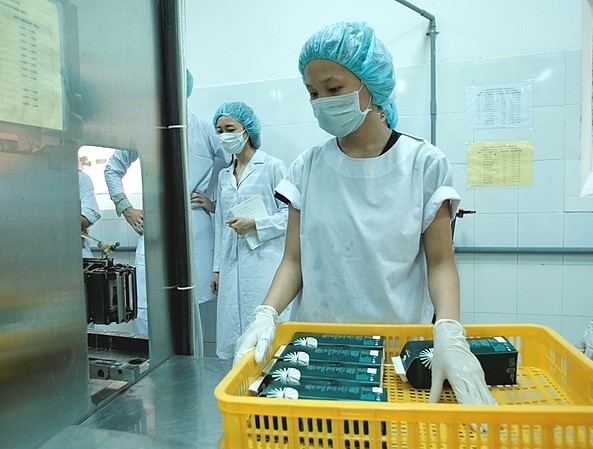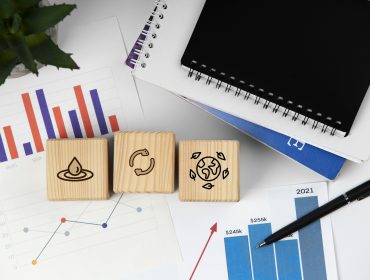
Resource-efficient and cleaner production audit bears fruit in Viet Nam
24th January 2017 – In recent years, rapidly developing industrial zones have brought about socio-economic development in countries such as Viet Nam, but there have also been environmental downsides, as many of these parks do not have waste-appropriate management and wastewater treatment systems. Since 2014, a UNIDO project has aimed to convert these zones into eco-industrial parks, where companies work together to reduce waste and increase resource efficiency. Similar projects are underway in Indonesia, China, India, South Africa, Colombia and Peru. Jean-Luc Voisin, Managing Director of Les Vergers Du Mékong, talks about how UNIDO helped it to reduce costs and the environmental impact of production.
– Les Vergers Du Mékong – which means the orchards of the Mekong River – was founded in 2000 by a French health-food specialist. Our factory is in an industrial park in Can Tho in the heart of the richest orchards of Viet Nam. Thanks to this proximity, we commit ourselves to exclusive local sourcing by building trust with local farmers through long-term relationships. We produce small-batch coffee, organic tea, not-from-concentrate fruit juice and single-strength and artisan-created jams, which are distributed not only domestically – to high-end hotels, restaurants, cafes and supermarkets – but also exported. The seasonal fruits and coffee are carefully selected and directly collected from farms in the Mekong Delta and the central Highlands. Concern for the environment was one of the company’s founding philosophies and remains its fundamental guiding principle today. Being sustainable is in the company’s DNA.
In order to be competitive in both domestic and foreign markets, we have also worked to reduce our costs. In August 2015 we received an invitation to an informative workshop of the UNIDO Eco-Industrial Park (EIP) project. They proposed to bring us technologies, knowledge and methods that help minimize wastewater and chemical waste, greenhouse gas emissions and energy use.
After participating in the workshop, we registered to receive Resource Efficiency and Cleaner Production (RECP) audits offered by the project. The first training on RECP for participating projects was conducted in January 2016. After that, from February to June 2016, we received three RECP audits arranged by the UNIDO EIP Viet Nam Project. Experts from the Vietnam National Cleaner Production Centre recommended some immediate solutions to cut down on energy and resource consumption. These suggestions included reusing water for gardening, recycling water and chemicals in the fruit washing machine, using solar energy to pre-heat juice before pasteurization and rearranging our space and lighting in order to decrease electricity consumption and improve conditions for workers.
These were easy and simple solutions that the RECP audits helped us apply effectively within only a few months. Without investing any money, we can now save up to VND 48 million (more than $2,000) per year.
During the project phase, we identified other important improvements that would better protect the environment and especially reduce water consumption, including a cooling system incorporating a chilled-water plant, a tunnel to recycle the water and process our own chilled water and a fruit-washing machine. None of those investments would improve the efficiency or the profitability of the production. They are purely environmentally oriented. What is more, those investments would cost about $200,000, which is quite consequential for a business of our size. That is why, in the long run, UNIDO’s support for the next investment phase towards sustainable development is crucial.
We hope that other companies in our industrial park will follow this eco-friendly path with the support of the UNIDO EIP Viet Nam Project, so that we can all grow more competitive by creating links with other companies, reducing costs and waste, increasing efficiency and decreasing our collective negative impact on the environment.
Written by UNIDO
Photo: Experts from the National Clear Production Centre of Vietnam helped Les Vergers Du Mékong to adopt simple measures to save resources and improve the working conditions.
Related Post
Equipping SMEs with the skills to...
SMEs and entrepreneurs heavily depend on skills to stay competitive and face greater challenges than larger firms in accessing and retaining...
The future of entrepreneurship with AI
AI-native startups are redefining the nature of entrepreneurship through accelerated scaling. With leaner teams, evolving funding dynamics, ...
Micro and small businesses can act...
In an international context where conflicts have reached their highest level since the Second World War, what role can micro, small, and med...




